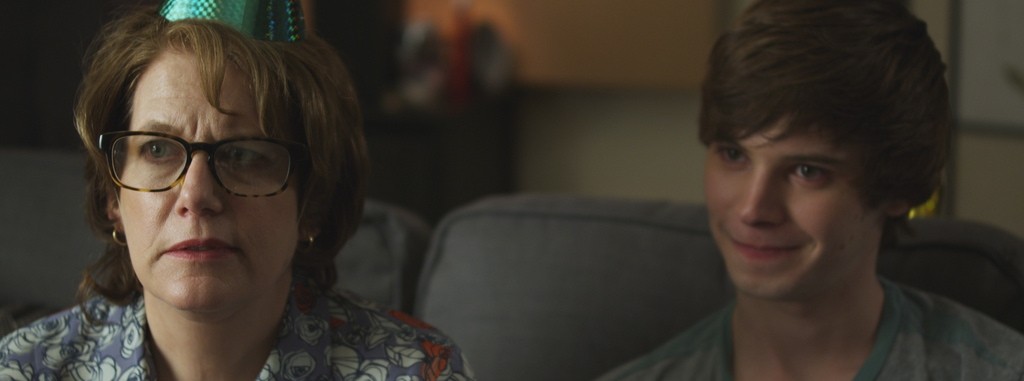Just in time for Valentine’s Day, audiences around the country have two pieces of cheerfully dumb, studio-approved, hard R-rated pornography to choose from at mainstream theaters. One is Sam Taylor-Johnson’s much-hyped adaptation of E.L. James’s insanely popular book series, “Fifty Shades of Grey,” charting the sexual awakening of a college-age virgin at the hands of a 27-year-old billionaire favoring games of bondage and dominance. The other is Matthew Vaughn’s “Kingsman: The Secret Service,” an adaptation of comic books by Mark Millar and David Gibbons that pay playful homage to the Bond pictures while amping up the violence to explicit-yet-cartoonish levels worthy of “Kick-Ass.” At first glance, these films would appear to have little in common, apart from their fetishization of chiseled jawlines, phallic weaponry and the more pleasurable aspects of pain.
What makes these often tediously dull misfires morbidly fascinating is how they go about tapping into the disturbing fantasies of their target audiences. In her excellent essay, “Sex, Lies & Fifty Shades,” published in Entertainment Weekly, Leslie Bennetts dissects the rather confounding appeal of the terribly written yet undeniably impactful books. “Because virtually all cultures stigmatize unrestrained female sexuality, coercion has always featured prominently in sexual narratives,” Bennetts writes. “For some women, being forced to have sex alleviates guilt, a major reason for the existence of rape fantasies.” When the maddeningly secretive Christian Grey (Jamie Dornan) briefly opens up to his latest prey, Anastasia Steele (Dakota Johnson), about his own BDSM initiation, courtesy of an older woman dubbed Mrs. Robinson, he explains that giving up control allowed him to “feel free.”
Alas, Christian can’t exist in any environment that isn’t entirely under his control, and since spontaneity plays such a vital role in sex, the “playroom” encounters between him and Ana lack any tangible erotic spark. So drearily conventional are the sex scenes that they never even build to a climax (the orgasms are left offscreen), and in an era where everyone from Ben Affleck to Shia LaBeouf is going full frontal, the lack of male nudity is especially conspicuous (whereas Johnson is repeatedly required to bare all). Even the Danny Elfman score is generic—so generic, in fact, that I kept hoping he would recycle some of his earlier scores. The “Breakfast Machine” anthem from “Pee-Wee’s Big Adventure” certainly would’ve given the sex some sorely needed manic energy.
Of course, we must step back and assess this material for what it is: fan fiction inspired by Stephenie Meyer’s “Twilight” and penned by a 40-something woman in the throes of what she herself has referred to as a midlife crisis. Like Bella Swan, Ana must sacrifice her own identity in order to win the nether regions of a humorless android exuding all the charisma of a vibrator. He’s a stalker and sexual predator with sociopathic tendencies, but he’s irresistible because—at least in the case of Christian—he has the money of a king and the looks of a Calvin Klein model. He also happens to be played in the film by a former Calvin Klein model in what can charitably be described as a feature-length series of Calvin Klein poses.
The sole glimmers of humanity register on the face of Johnson, the daughter of Melanie Griffith and granddaughter of Tippi Hedren, whose doe-eyed vulnerability is entirely authentic, as is her sense of violation in the film’s final moments, when she recoils from Christian as if awakening from a long, degrading wet dream. She also has some amusing moments of deadpan bewilderment early on that suggest what the film may have been had it taken a less self-serious approach. In fact, Jennifer Lopez already released that movie a few weeks ago (“The Boy Next Door”), where she played a woman around James’s age, who has an affair with a young, dominating sociopath. Like Christian, his seduction technique includes gifting first editions of classic books, though in the Boy’s case, he somehow manages to scrape up the first edition of Homer’s Iliad, the infamous Greek poem dating back to 760 BC, at a garage sale. Uh huh.
Speaking of silliness, let’s take a look at “Kingsman,” the latest half-hearted stab at recapturing the magic of more cheeky, gadget-laden Bond pictures, albeit for crasser sensibilities. Colin Firth brings a deliciously dry wit to his role as a master spy recruiting a troubled youth (Taron Egerton, utilized primarily as eye candy) to join his team. The villain is played by Samuel L. Jackson, and has a lisp that starts out funny (“Tough thit, bith!”) and grows more tiresome with every successive scene. His maniacal plan to end global warming involves the mass giveaway of SIM cards that can be programmed to turn their users homicidal. He first experiments with this technology in a church modeled not so subtly after the one inhabited by the Westboro Baptists, whose grotesque brand of hate-mongering has rightly earned the animosity of most sane humans.
Here’s where the odd “Fifty Shades” comparison comes into play. Firth happens to be at the church on assignment when the SIM cards wreak their havoc. Prior to the bloodshed, an equally vile atrocity materializes in the form of a sermon spewed by the pastor that pulls off the neat trick of being racist, sexist, anti-Semitic and homophobic. Understandably disgusted, Firth moves to leave, and is confronted by a suspicious parishioner. His response to her is so pitch-perfect that I assumed the scene was over. Boy was I wrong. With the killer juices suddenly flowing, Firth turns and shoots the woman point-blank in the face. Then, in a rather galvanizing sequence of sickening brutality softened somewhat by the Guy Ritchie-inspired camerawork, Firth slaughters countless other church members until he is surrounded by nothing but corpses. Jackson dominated his brain, enabling him to act on his murderous feelings while free of guilt.
It’s an extremely uncomfortable scene to watch, considering the very real issues it callously trivializes. Hyper-violent imagery is certainly what many American audiences want to see, but it’s far from what they need. It was deeply unsettling for me to observe the number of times audience members broke out into applause when Chris Kyle hit one of his targets in Clint Eastwood’s well-intentioned but problematic “American Sniper.” In the wake of the Paris tragedy and the escalating fear of ISIS, some people undoubtedly flocked to “Sniper” because it played into their Islamophobic fantasies. They felt no guilt in cheering the footage of Muslims getting gunned down because, after all, Kyle was saving American lives. It’s clear that Eastwood had intended to elicit cheers with the death of an Iraqi sniper, who kills a Muslim family in the film’s most horrific sequence. Yet the film’s overarching perspective is an objective one, allowing the audience to project their own biases upon it. Bradley Cooper beautifully portrays Kyle’s apprehensions and PTSD, though much of it appears to have been left on the cutting room floor.
Will “Fifty Shades of Grey” or “Kingsman: The Secret Service” rake in an “American Sniper”-sized haul at the box office this President’s Day weekend? The people at the preview screenings I attended certainly seemed to be enjoying themselves. “Fifty Shades” earned just as many laughs as “Kingsman” did, and when the final cut to black arrived, the audience erupted into a cacophony of giggles. Were they laughing with incredulity at the outrageously unsatisfactory ending? Were they laughing at themselves for sitting through such a turkey? Or were they merely giddy from the experience of sharing this story with their friends? Bennetts is absolutely right in her assertion that female sexuality is criminally shunned and underrepresented, and though it’s a shame that something as juvenile as “Fifty Shades” finally pushed it into the mainstream, it’s a start, I guess.
Moviegoers seeking a more empowering, nuanced and infinitely superior exploration of female identity are urged to seek out Céline Sciamma’s “Girlhood,” the best narrative feature I’ve seen so far this year, which recently had its Chicago premiere at the Gene Siskel Film Center. With 2007’s “Water Lilies,” 2011’s “Tomboy,” and now this latest masterwork, Sciamma has proven to be extraordinarily adept at illustrating the complicated dynamics between young women and their struggle to define themselves despite societal strictures. A genius at directing non-actors, Sciamma does not disappoint here, coaxing a glorious debut performance from Karidja Touré as Marieme, a teen whose limited options lead her to befriend a gang of shoplifters. She makes some unwise decisions, but Marieme is learning more and more every step of the way, all the while determined to live life on her own terms. Like “The Spectacular Now,” “Girlhood” cuts to black after pivotal, life-altering moments have occurred, freezing them in time as music set to the rhythm of Marieme’s rapid heartbeat floods the soundtrack. After the numbing fantasies of this weekend’s laughable blockbusters, “Girlhood” is a welcome jolt of reality.


